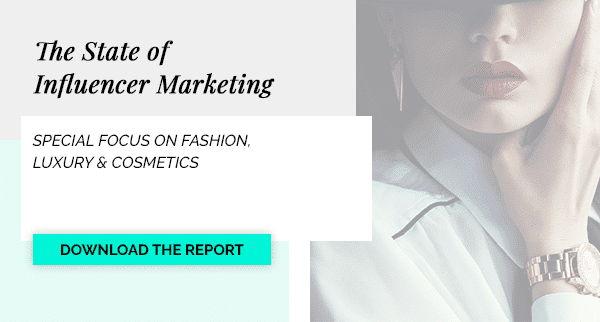Our #StateofInfluence series is in full force and continues today with even more insights from industry professionals from our State of Influencer Marketing Report. This week, we will be featuring Ann Tran, who is a #Forbes listed social media influencer, writer and brand consultant, as well as a TEDx speaker. Tran has built up a following as an accomplished writer, in the fields of social media and travel, and had a lot of useful information to share with us about her view on influencer marketing.
#StateofInfluence: An Interview with Ann Tran
Could you tell us a bit about how you entered the influencer world? What brought you on this path?
I was listed on Forbes magazine article "Who Are The Top 50 Social Media Power Influencers" in 2013, which propelled me onto the radar screens of the social media and travel industries. I'm not keen on the term "influencer." I am grateful that I was listed on Forbes (no doubt about that), but I am a content creator and a writer. In addition, I've written quite extensively about the "do's and don'ts" of social media on The Huffington Post, Entrepreneur and other publications. This also gave me the opportunity to share my expertise which led to my growing profile on the global stage.
According to you, how has influencer marketing evolved over the past few years?
I've been lucky enough to work with brands that 'get' social media. Social media works best when it is a long term campaign and not a one-off assignment. Long term relationships build loyalty and consistent messaging. There is a learning curve when you hire a new employee. In the same sense, why would you hire an influencer for just one event? It works best in a series.
Do you think influencer marketing will continue being as effective in the near future?
Definitely! I actually search where I may be interested in visiting by hashtags on social media. Images or videos move us. It will catch our attention first, and pull us into reading more about the destination or product. Storytelling through images will draw engagement and trust to hopefully making that purchase.
I am asked quite often where to eat in Washington, D.C. as this is my home base. I haven't been home much due to my travel schedule. However recently, I shared a short list of my favorite restaurants on Instagram and it is quite popular. By the end of this month, I will post an article so I can send this link out when I receive a DM or inquiry through social media of my top 10 eats.
From your experience, what do brands typically look for in an influencer when engaging a collaboration?
Brands look for different styles and voices. The brands obviously want impressions, views and engagement and ultimately a sales transaction.
What’s the perfect formula for a successful collaboration?
I will reiterate... long term campaigns and compensate your marketer. Pay them for their creativity and talent. Giving a free product does not pay the bills or working on commission. The brand is getting access to years of your hard work and community.
Measurement is still a challenge for brands: What factors do you think brands should take into account to judge whether influencer campaigns were successful?
This will always depend on the end goal. Is it likes? If so, these can be easily purchased, which is such a disservice to the brand. Brands expect an immediate viral campaign. This isn’t the case - you have to rerun images or links, just as you would with a commercial on television. If they are not talking about you, they will be speaking about your competitors. Be social to be found on social media.
How can brands maintain authenticity when working with influencers?
Set expectations, but let the influencer have their own voice. I worked on a campaign once and they had to approve each post. Review and vet the influencer to make sure they're a match with the brand., then let the individual be free to create content without being so constrained.
What piece of advice would you give any professional who is looking to work with an influencer on their next campaign?
Don't just look at the numbers. They may have 5,000 likes and 5 comments. Look at the engagement and dig deep into the comments. Does the comment pertain to the caption, or is it just a fluff “oh pretty” with no depth to the product or message of the campaign?
Compensate accordingly, as the influencer is providing you a marketing service and access to their audience. People often forget that there is a real person behind the screen. I like when the brand follows up with a phone call. I worked with a brand where we had a call before each assignment.
See the data behind influencer marketing
If you want to learn more about the data we collected for this year's influencer marketing report, get your free copy below:

